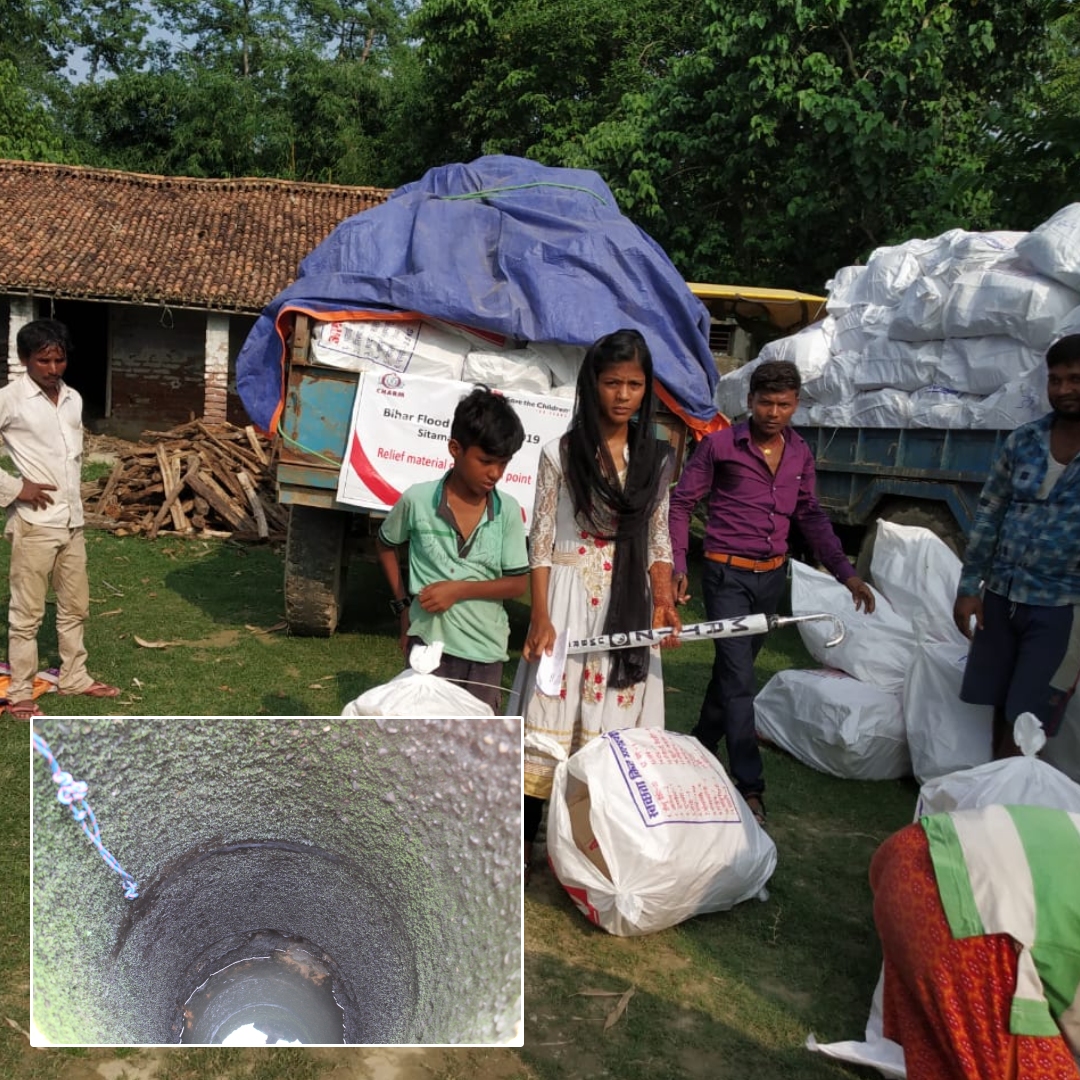
Image Credit: Save The Children
India
Don't Ignore Children And Keep Them Out Of Climate Change Conversations
 |
|Friederike Otto at the University of Oxford, a lead IPCC author, said, “Climate change is not a problem of the future, it’s here and now, and affecting every region of the world.”
In its sixth assessment report released on August 9, the United Nations Intergovernmental Panel (IPCC) on Climate Change has for the first time taken a departure from their conversative language and made a strong assertion, "It is unequivocal that human influence has warmed the atmosphere, ocean and land."
The BBC reports, the phrase "very likely" appears 42 times and in scientific parlance that "that's 90-100% certain that something is real."
Friederike Otto at the University of Oxford, a lead IPCC author, said, "Climate change is not a problem of the future, it's here and now, and affecting every region of the world."
What does the report say on India? As per the report, heat extremes have increased in the Indian subcontinent, as a result, heat waves and humid heat stress will be more intense and frequent. Droughts, rainfall events and cyclonic activity are also likely to increase.
The recent heat wave phenomenon in the US and Canada (25 June to 1 July) has affected cities, which have not experienced such extreme weather in the past. Similarly, in India, Delhi National Capital Territory experiences severe extreme heat in the first week of July since 2012.
In the past 50 years, heatwaves have killed more than 17,000 people in India. Latest floods in Germany and Belgium that have killed over a hundred people and several still missing, is again a glimpse of extreme weather events that can be attributable to human-induced climate change.
Around the same time, Northern Europe was grappling with heatwaves and Finland registered the warmest June month on record. The scientific fraternity has linked these sudden temperature variations to the changing climate. Here in India, the heavy rains occurred in Bihar and Uttar Pradesh in the month of June, which is unusual for this month and this part of the country. It has caused the increased water levels in the main rivers and caused heavy flooding in different parts of these two states.
Don't ignore children and keep them out of climate change conversations. No one is too small to have an impact and change the world, so just do everything you can. Be creative!'
– Greta Thunberg
Climate change poses a grave threat to the planet earth. The greenhouse gas (GHG) emissions is on the rise due to heavy dependence of human activities on fossil fuels for generating power, running transportation, providing heat, etc. This rise in GHGs is leading to rise in temperature and causing climate change. The visible impacts of climate change are floods, droughts, coastal inundation, migration, food insecurity etc.
How does it affect children?
These latest and past extreme weather events have equally affected the developed and the developing worlds. The challenges for the low and middle-income economies that are struggling to vaccinate their citizens against Covid-19 further accentuated due to extreme weather events e.g. flood in Western Kenya.
As these events, especially flooding, cause huge damage to the infrastructure and rebuilding the same leads to big fissure in the coffers of these countries. This capital, otherwise, might be used for improving the social and physical (building resilient) infrastructure and services, which are basic requisites for the well-being of citizens in these nations that have a high number of young populations.
This investment is critical especially for children who are the future builders of these nations. Thus, these extreme weather events are a grim reminder to policymakers that they need to address climate change with strong policy actions and requisite financial resources.
According to UN, estimates there are over half a billion children live in extremely high flood occurrence zones. Similarly, there are nearly 160 million children live in areas of high or extremely high drought severity. These hydro-meteorological hazards are challenging the basic survival of children, especially the most marginalised and deprived living in the global south. Children need to be protected from such extreme weather events and hazards.
It is well acknowledged that children are highly vulnerable to the impacts of climate change for reasons related to their physical and mental development as well as their general exclusion from decision-making processes. They are less able than adults at adapting to heat waves, cold waves and other climate-related exposures.
Children are at greater risk of being injured or killed in hazards, the majority of which are weather-related.6 The ignorance of children and their voices in decision-making processes is a common practice and it is contrary to Article 12 of UNCRC, "This denial of children's agency and right to participate in decision-making processes that directly affect their lives has implications for whether these processes will adequately respond to their needs. It also limits the extent to which these processes can benefit from the unique insights and innovative solutions that children can generate."
Ignorance to what is happening around and not taking into account the problems of changing climate will lead to greater catastrophe - to which our present young and future generation will never forgive us.
The well-known Brundtland report ´Our Common Future` states that 'development that meets the needs of the present without compromising the ability of future generations to meet their own needs. It's clear from this statement that it's the responsibility of the adults to make sure that today's children and their future do not suffer due to the faulty, insensitive and unsustainable practices that is depleting environment to an irreparable stage.
These children do not make any decisions and are not a party to any such processes.8 This is the reason why the incumbent United Nations Secretary-General Antonio Guterres rightly stated, "My generation has largely failed until now to preserve both justice in the world and to preserve the planet. It is your generation that must make us be accountable to make sure that we don't betray the future of humankind."
Creating Child Climate Champions
Greta Thunberg, the 18-year-old climate champion from Sweden, was the lone striker in August 2018 (sitting alone outside the Swedish Parliament). It is her strong determination and (may be) the enabling environment in her country (where children have the rights to raise their concern, protest and be heard), helped her to focus on this critical agenda, which is detrimental to human existence.
Some policymakers initially painted such climate strike led by children across different continents, as motivated, sponsored, or other way of criticising the governments. However, this did not deter young children climate activists to fight for the cause of a safe planet.
Thanks to children striking for climate change. It actually helped them building their agency to come together to demonstrate that they are 'concerned for planet' without any stake. In addition, with a clear message that - Do not ignore us! They are asking serious questions and unfortunately, not many in power have clear answers to them.
We (adults) need to allow children to raise their concerns, listen to them, and act on their issues to engage them in policy and governance matters. This will allow them to be a responsible citizen (at an early stage) to strive to make this world safe for all.
Greta might have done this because in her country children is provided a platform to come forward and speak up for the issues that concern them. It also indicates that a lot of ground has to be covered across countries to bring children's rights to the forefront of the policy parlance. Global leaders will be convening from 14th September to 30th September at the UN General Assembly. In addition, there will be COP 26 UN Climate Change Conference from 31 October to 12 November 2021. This conference will be hosted by the UK in partnership with Italy.
It is imperative that they address climate change concerns and bring future generations lens in their plans and policy frameworks.
Her action explains that do not be ignorant, do not wait for the problem to aggravate, listen to the signals of distress (surrounding environment, or raised by scientist etc.) and act fast to prevent the chaos before it is too late.
Children can see what adults ignore to see. Greta has awakened the 'animal spirit' for the global environment, its conservation, and preservation, which has implications for each living organism on this planet. Climate Change is a buzzword for many but you unleash the value of it for larger humanity in a simple way. Keep awakening us until the concrete actions not be in place.